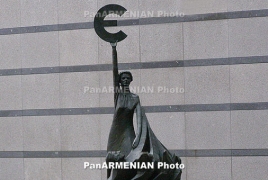
On 8 April, the European Union and Armenia held the 10th round of their regular Human Rights Dialogue in Brussels.
The EU and Armenia referred to their readiness to continue implementation of the EU-Armenia Comprehensive and Enhanced Partnership Agreement (CEPA). After the latest elections in Armenia, the expectations among Armenian citizens regarding the strengthening of democracy and the rule of law, fight against corruption and protection and enhancement of human rights are high. The CEPA commits the EU and Armenia to strengthening respect for fundamental freedoms.
At the meeting the EU and Armenia discussed freedom of assembly and expression, electoral reforms, gender equality, antidiscrimination policy, judicial and penitentiary reforms, as well as labour rights. Further amendments to Armenia’s media related legislation would ensure greater transparency and plurality.
Armenia confirmed its commitment to pursue justice reforms, notably to the principle of equality before the law, to an independent judiciary and to an effective mechanism of checks and balances. It is crucial that Armenia adopts a comprehensive anti-discrimination law in line with international standards and establishes a national equality body under the Human Rights Defender's office. The Human Rights Defender and his office have taken positive steps to set up round-the-clock helplines and rapid response teams.
The EU and Armenia discussed the preparation of the draft National Strategy on Gender Equality 2019-2023. Both sides highlighted the importance of raising public awareness and promoting gender equality, especially through education, and reiterated its support to this end.
Close co-operation between the Armenian authorities and the European Committee for the Prevention of Torture and Inhuman and Degrading Treatment (CPT) would be beneficial. The Armenian National Prevention Mechanism should continue capacity building to better monitor and evaluate psychiatric institutions and the police and penitentiary and juvenile institutions.
In line with its policy, the EU met and consulted representatives of the Armenian and international civil society prior to the Human Rights Dialogue. The Dialogue meeting resulted in operational conclusions with concrete actions that will be monitored and followed up over the next year.
The Armenian delegation was headed by Avet Adonts, Deputy Minister of Foreign Affairs, while the EU delegation was led by Richard Tibbels, Head of Division for bilateral relations with Eastern Partnership countries at the European External Action Service. Arman Tatoyan, Armenian Human Rights Defender, and Mara Marinaki, Principal Advisor for gender issues from the European External Action Service also participated in the meeting.

